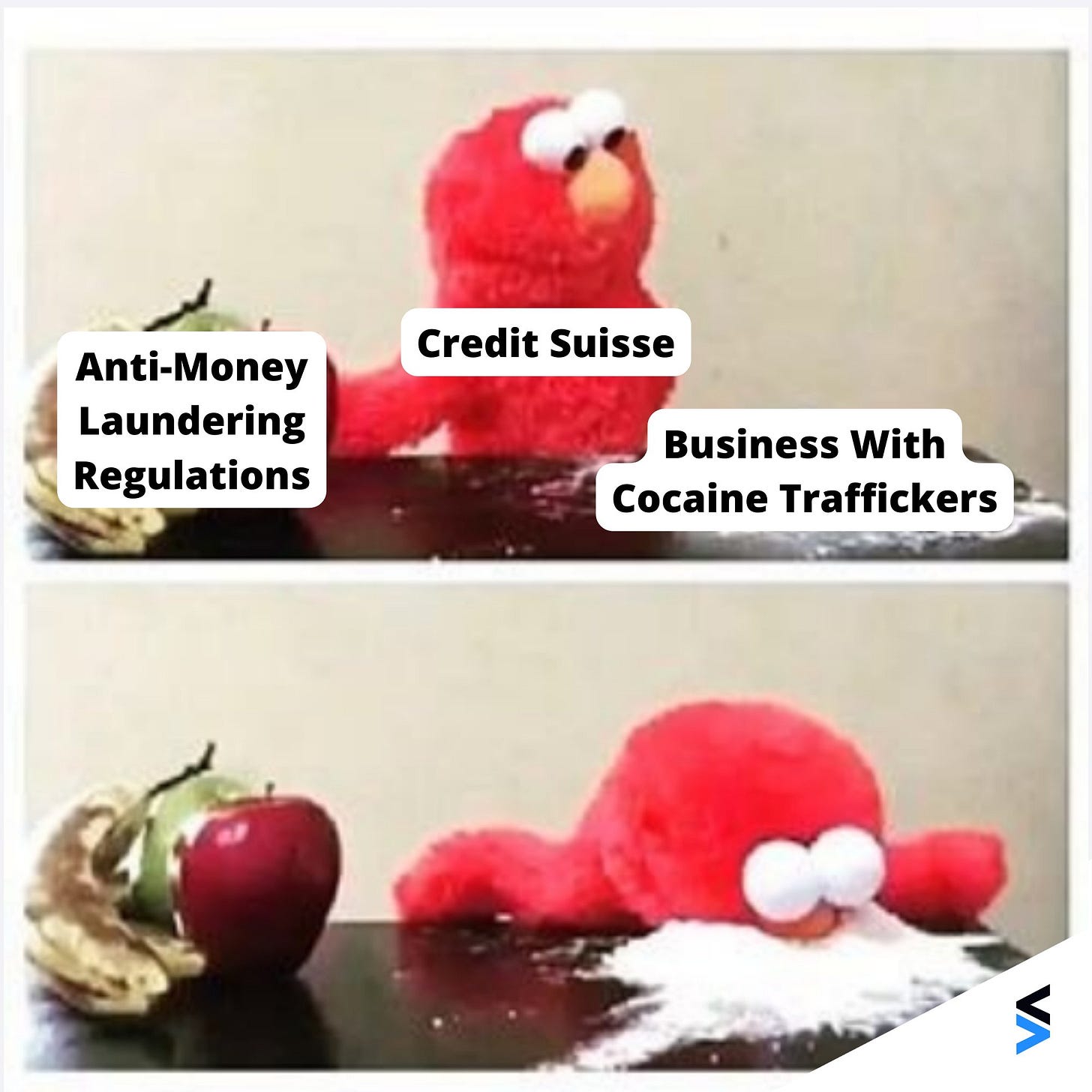Credit Suisse’s drug money and the future of bank & FinTech regulation 🔍; Can Brazilian Super App win in the US? 🤔; If you aren’t a late-stage FinTech, you might need to worry 👀
Good Morning FinTech, 29 June
Good evening Everyone,
And happy Wednesday! Today’s issue is undoubtedly the hottest one this week. We are going to look into Credit Suisse’s drug money and the future of bank & FinTech regulation (ripple effects are inevitable here), see whether Brazilian Super App can win in the US (it has a USP but it won’t be easy), and why non-late-stage FinTechs might need to worry right now (bonus is a powerful template for making VCs eager to invest in your startup). So without further ado, let’s jump straight into the good stuff:
Credit Suisse’s drug money and the future of bank & FinTech regulation 🔍
The (bad & sad) news 🗞 Credit Suisse, one of the biggest banks in Switzerland, was just convicted in its home country’s federal criminal court of failing to prevent money laundering.
The drug money 💊 The bank had been on trial over allegations that Credit Suisse and the former employee back in 2004-2008 did not take appropriate action to stop a Bulgarian drug trafficking outfit from laundering profits through the bank. The criminal charges in part lie with an inadequate screening of cash deposits — whereas Bloomberg noted, that those deposits had been regularly accepted by the aforementioned unnamed banker in amounts exceeding $500,000.
Credit Suisse was fined the equivalent of $2 million.
Why is this important? 🤔 For a company that has hundreds of billions of dollars of cash on hand, this fine is just a drop in the bucket. Yet, this will undoubtedly cause some ripple effects in the finance industry and signals new money laundering liabilities for banks, FinTechs and crypto firms. Here’s the takeaway:




